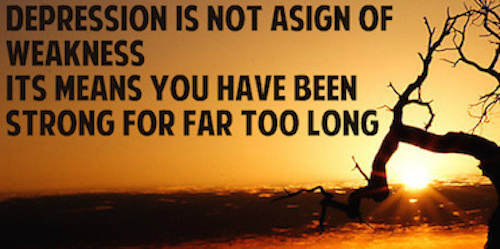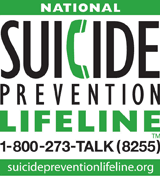
When it seems like everyone is living a picture-perfect life, admitting you’re struggling feels like utter failure. But more people than you think—millions, in fact—are working through mental health problems, including depression and anxiety. Celebrities like Lena Dunham and the Duchess of Cambridge have spoken out about the need to end the stigma associated with mental illness, and the tide is changing.

What Is Mental Health?
Mental health includes our emotional, psychological, and social well-being. It affects how we think, feel, and act. It also helps determine how we handle stress, relate to others, and make choices. Mental health is important at every stage of life, from childhood and adolescence through adulthood.
Over the course of your life, if you experience mental health problems, your thinking, mood, and behavior could be affected. Many factors contribute to mental health problems, including:
- Biological factors, such as genes or brain chemistry
- Life experiences, such as trauma or abuse
- Family history of mental health problems
Mental health problems are common but help is available. People with mental health problems can get better and many recover completely.

Early Warning Signs
Not sure if you or someone you know is living with mental health problems? Experiencing one or more of the following feelings or behaviors can be an early warning sign of a problem:
- Eating or sleeping too much or too little
- Pulling away from people and usual activities
- Having low or no energy
- Feeling numb or like nothing matters
- Having unexplained aches and pains
- Feeling helpless or hopeless
- Smoking, drinking, or using drugs more than usual
- Feeling unusually confused, forgetful, on edge, angry, upset, worried, or scared
- Yelling or fighting with family and friends
- Experiencing severe mood swings that cause problems in relationships
- Having persistent thoughts and memories you can’t get out of your head
- Hearing voices or believing things that are not true
- Thinking of harming yourself or others
- Inability to perform daily tasks like taking care of your kids or getting to work or school
Learn more about specific mental health problems and where to find help.
Mental Health and Wellness
Positive mental health allows people to:
- Realize their full potential
- Cope with the stresses of life
- Work productively
- Make meaningful contributions to their communities
Ways to maintain positive mental health include:
- Getting professional help if you need it
- Connecting with others
- Staying positive
- Getting physically active
- Helping others
- Getting enough sleep
- Developing coping skills.
Mental health emergency – if you’re in crisis or despair
If your mental or emotional state quickly gets worse, or you’re in crisis or despair, it’s important to get help quickly. You’re not alone; talk to someone you trust. Sharing a problem is sometimes the first step to recovery.
Help and support
Someone who’s having suicidal thoughts may not ask for help, but that doesn’t mean they don’t want help and support. It can be difficult finding the words to express what they are feeling.
If you’re concerned about someone, you could:
- show you care by asking saying something like: ‘I’m worried about you and I want to help’
- discuss suicide – asking about it won’t put the idea in people’s heads. You could ask then: ‘Do you feel like harming yourself?’ or ‘Do you feel like ending your life?’
- call for help and encourage them to look for help. You could say: ‘You are not alone and there are people who can help you out of this situation’ or ‘I will stay with you until you get help’
Recognising potential warning signs
Suicide prevention begins with recognising warning signs that someone may be considering taking their own life. The signs include:
- talking about death or suicide
- pre-occupation with death
- depression
- hopelessness
- alcohol and drug misuse
- low self-esteem
- bereavement
- relationship break-up
- changes in behaviour
- previous history of suicide attempts
- self-loathing or self-hatred
- getting affairs in order
- social isolation
- self-destructive behaviour
- sudden sense of calm or appearing very upbeat following depression
Don’t avoid talking about suicide. Discussing suicide in an open, non-judgmental, sensitive, discreet and practical way can allow someone in crisis to know they aren’t alone and help is available.
Your care plan
If you have a care plan, there are names and numbers to contact in an emergency. If you were or are being treated for a mental illness, you should have a care plan.

Where to go for help
If you don’t have a care plan, or can’t find it, you could:
- make an emergency appointment with your doctor, or call your doctor’s surgery out-of-hours service if the emergency is at night or the weekend
- call your mental health worker if you have one
- go to the accident and emergency department at your local hospital
Mental health crisis team
All trust areas have a mental health crisis team with psychiatric nurses, social workers and support workers. They:
- carry out mental health assessments
- provide support and short-term help until another team is available or the help is no longer needed
You can ask your GP or the GP out of hours service about the mental health crisis team for your area.
If you’re caring for someone
If you’re caring for someone, there are support services that can help.
If they’re in immediate danger, telephone the police on 999.
If you need someone to talk to
If you want to talk about how you feel or how you deal with someone else’s behaviour, you can speak to a friend, family member or your GP.
Lifeline
If you or someone you know needs help, you can telephone Lifeline free at any time. Lifeline is a crisis response helpline available 24 hours a day, seven days a week to people in Northern Ireland. It offers immediate help over the telephone if you, or someone you know, is in distress or despair.
- telephone: 0808 808 8000
- Lifeline freephone helpline
The Samaritans
The Samaritans offer a 24-hour telephone helpline:
- telephone: 028 9066 4422 (local call charges apply)
- National telephone:116 123 (this number is free to call)
- textphone: 08457 90 91 92
You can also contact them by email or post.
Childline
If you’re under 19, you can contact Childline:
- telephone: 0800 1111
- Childline
- Young healthy minds website



Oh my goodness – being a Nurse who works in inpatient Mental health, I LOVE this post so very much!!!! Can’t even tell you how much you hearing you talk about it and spread the awareness of it warms my heart. So many times people think they are alone. I’m blessed with getting to work with these people at the worst of times and they have changed me far more than I have changed them I’m sure. The world is harsh, people are mean, as a population of the world we need to build each other up more. Most of all we need to help people know that when they feel hopeless and helpless there are places to reach out and that they should reach out. They are also great resources for loved ones to know how to be there for people who feel hopeless and helpless because there are right and wrong ways to do or say things for these people.
LikeLiked by 1 person
Thankyou for your comment FRUGALFRIENDLYFAMILY 🙂
That means alot and can I say what a great job you are doing in inpatient Mental Health! There are just so many people across the world with Mental Health issues some diagnosed and many not diagnosed that need all the help and support they can and should be getting! Very correct you are too, the world can be a very harsh place and people can place judgement on people they see suffering with mental health to easily if they haven’t either been through it themselves or have a close family member or friend who is suffering with it! Because any one of us could have a sudden change in circumstances one day at any given time, and suffer with mental health and be on that long dark road just as much as anybody else who is already suffering! Trust me i know myself it is not a nice place to be in and have someone very close to me who suffers with this also 😦 so lets keep raising awareness about this as much as we can everybody please please if anyone reads this just one button to click share is all it takes on your part to help us spread awareness on this!
Keep up your good work hun 😉
LikeLike
I stuffer from mental health illness and depression right now I’m feeling low down everything I’m crying all the time hardly having no sleep snapping being moody and can’t seem to relax I don’t know what to do
LikeLike
I totally understand where you are at Zoe as I myself have been there and still suffering the aftermath of it sadly! I have severe anxiety and depression and ptsd myself also. There sadly is no quick fix and just try concentrate on taking care of yourself and just go with taking each day as it comes which is what I do one day at a time ! Some days are harder than others .. seek counselling and talk with others on groups who have been through the same experiences as they are the ones who understand how you are feeling sweetheart please share this link out let’s get others knowing we support them too here xx
LikeLike